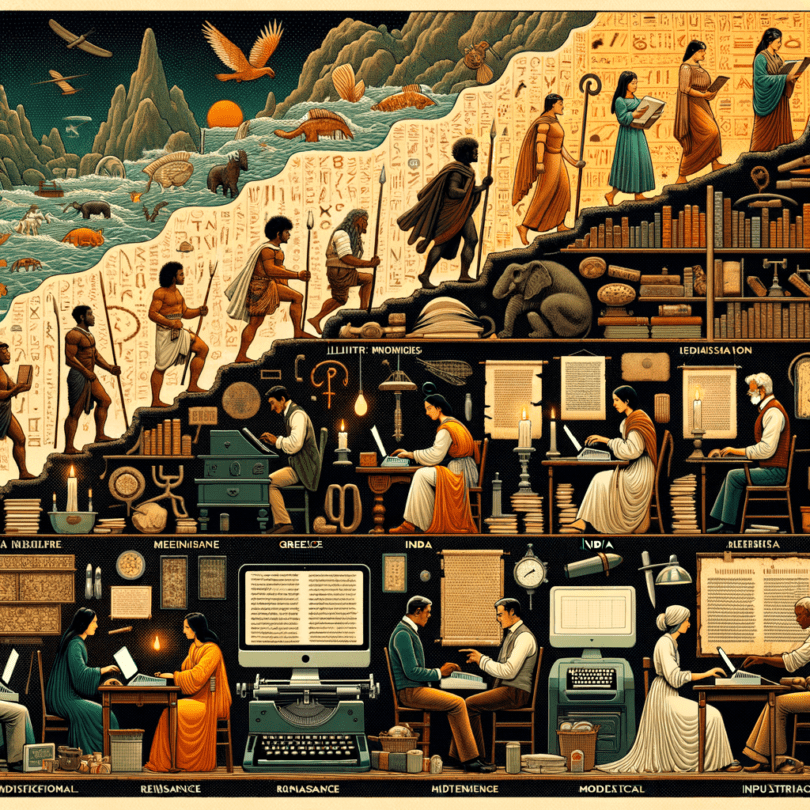Language, the cornerstone of human civilization, has evolved over thousands of years, changing, adapting, and growing like a living organism. This evolution is a testament to our observant intellect, conveying our experiences and ideas through the medium of words. Our journey through time unfolds this epic saga of language evolution in the light of literary masterpieces, showcasing the imprints that history has left on the tapestry of our languages.
When we look back at the early societies, we see languages in their infancy: crude, unrefined, yet powerfully expressive. Cave paintings and inscriptions are mirrors to these proto-languages, depicting stories of hunts, battles, or celebrations. With agriculture and settling, more complex ideas surfaced, necessitating a more sophisticated form of expression. At this juncture, writing systems such as Sumerian cuneiform and Egyptian hieroglyphics emerged, laying down the foundation for modern language.
As societies expanded and came into contact with each other, languages melded and morphed under multicultural influences. The result was an eclectic fusion of dialects, giving birth to languages teeming with borrowed elements. Ancient Greek is a prime example of this linguistic amalgamation, as it absorbed from and bestowed upon many languages, influencing English, French, German, and more.
This evolution didn’t stop with spoken language; it seeped into literature, intensifying its emotional depth, intellectual complexity, and stylistic grandeur. From the ancient epics of Homer, rooted in oral tradition, to Shakespeare’s blending of Elizabethan and modern English, each era voiced its unique consciousness through its literary masterpieces.
Peeling away layers of Old English from the texts of Beowulf, we uncover a language filled with Germanic influence, shaped by its Northern European heritage. As we move forward towards Middle English, we encounter Chaucer’s Canterbury Tales, with their blend of French and Latin vocabulary, reflecting more exposure to foreign cultures. By the time we reach Shakespearean English, we understand how Latin, Greek, and even distant languages like Italian and Spanish influenced the evolution of the English language and literature.
Fast forward to our contemporary context, and we see language as we know it, informed by centuries of migration, colonization, technological innovation, and cultural transformation. Our modern literature, from George Orwell’s dystopian societal commentary to Arundhati Roy’s post-colonial narratives, resonates with this notion, testifying the intricate dance between language evolution and literary progression.
In summary, the evolving saga of language is a testament of human adaptability, creativity, and intellect. It is a journey marked by the blending of cultures and the echoes of historical milestones. Language evolution is a catalyst for the emergence of literary masterpieces, giving them their unique flavor and aesthetic. Today, with numerous world languages and countless literary works, the journey continues, ever-evolving and shaping our knowledge, culture, and perceptions.
Language isn’t merely a tool for communication; it’s a living, breathing entity that evolves with us, telling our collective story, one word at a time.

